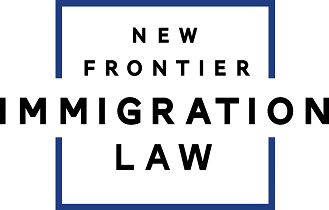
Bringing your loved ones to the United States is a significant and heartfelt desire for many. Reuniting with family members and creating a life together in this land of opportunities is a dream worth pursuing.
Fortunately, the American immigration system offers family-based immigration options that can help make this dream a reality. A skilled Scottsdale immigration lawyer can guide you through this process, providing invaluable assistance and support.
Process for Sponsoring a Family Member for Immigration
Sponsoring a family member for immigration to the United States is a noble and rewarding process that allows you to reunite with your loved ones. However, it’s essential to understand the steps involved and the requirements to ensure a successful application.
- Determine your eligibility and relationship. U.S. citizens and permanent residents can sponsor certain family members, including spouses, children, parents, and siblings. The type of relationship determines the immigration category.
- Confirm your status as a sponsor. Depending on your immigration status (U.S. citizen or permanent resident), you will follow different processes and have varying waiting times.
- File the appropriate petition. File the correct immigration petition for your family member. That usually involves submitting Form I-130, Petition for Alien Relative.
- Wait for USCIS processing. Once the petition is filed, it undergoes processing by the U.S. Citizenship and Immigration Services (USCIS). The waiting time can vary based on the relationship and the sponsoring family member’s immigration status.
For a free case review with a family petitions lawyer serving Scottsdale, call
Family-Based Immigration Categories
Understanding the various family-based immigration categories is important when aspiring to sponsor a family member. These are some of the primary categories:
Immediate Relative Immigrant Visas
Immediate Relative Immigrant Visas are designed for close family members of U.S. citizens, including spouses, unmarried children under 21, and parents (if the petitioner is 21 or older).
Family Preference Immigrant Visas
Family Preference Immigrant Visas are for specific family relationships with U.S. citizens and some categories of permanent residents. The categories include:
- First Preference (unmarried adult children of U.S. citizens).
- Second Preference (spouses and unmarried children, under 21 years old, of permanent residents).
- Third Preference (married children of U.S. citizens).
- Fourth Preference (siblings of adult U.S. citizens, if the U.S. citizen is 21 years old or older).
Visa for Fiances and Spouses
The K-1 visa is for the fiancé(e)s of U.S. citizens. It allows the foreign-citizen fiancé(e) to travel to the U.S. and marry their sponsor within 90 days of arrival. The K-3 visa allows the foreign-national spouse of a U.S. citizen to enter the U.S. while they await the processing of their immigrant visa petition.
VAWa Self-Petition
The Violence Against Women Act (VAWA) allows abused spouses or children of U.S. citizens or permanent residents to file a self-petition for lawful permanent residency without the abuser’s knowledge or consent. It aims to provide protection and independence to victims of abuse.
Refugee or Asylee Relative Petitions
Refugees and asylees in the U.S. can petition to bring their spouses and unmarried children under 21 to the country. After one year of being granted asylum or refugee status, they can apply for lawful permanent residency.
How Long It Takes for a Family Member to Immigrate to the United States After a Family Petition
The immigration process for a family member after filing a family petition involves several steps, each one associated with waiting times. Understanding the timeline helps set realistic expectations for family reunification. Here’s a breakdown of the typical time frames:
- Filing the petition (I-130). The processing time for an I-130 petition varies but usually takes several months.
- Visa availability. For family preference categories, there are limited visa numbers available each fiscal year. The waiting time depends on the category and the country of chargeability.
- Processing times. After filing all your documents and forms, you need to wait for consular processing time and adjustment of status processing time. After that, you probably need a medical examination and an Interview.
- Final decision. After completing the required steps, a final decision is made on the immigration application. If approved, the family member is granted permanent residency and can join their sponsoring family member in the U.S.
Navigating through the immigration process and understanding the associated waiting times can be challenging. Consulting experienced Scottsdale family petitions immigration lawyers ensures that you have accurate information about the timeframes and can plan accordingly for your family’s reunion in the United States.
Our Family Petitions Lawyers
Documents and Evidence Required for a Family-Based Immigration Petition
Embarking on the journey of family-based immigration to the United States necessitates a thorough understanding of the essential documents and evidence required to support your case. Gathering the right paperwork is a vital step toward a successful petition. Here are the key documents and evidence needed to initiate and substantiate your family-based immigration petition:
- Form I-130: Petition for Alien Relative
- Proof of Relationship
- Financial Documents
- Affidavit of Support (Form I-864)
- Proof of U.S. Citizenship or Permanent Residency
- Passport-style Photos
- Medical Examination
- Police Clearances
Any additional documents relevant to the case, such as proof of joint assets, joint leases, or joint bank accounts, can further bolster the petition.
Complete a
Free Case Evaluation
Form now
Frequently Asked Questions About Family Immigration
Here are some common questions often asked by those seeking to reunite with their families in the United States:
What Are the Financial Requirements for Sponsoring a Family Member?
The U.S. citizen or permanent resident petitioner must showcase their ability to provide at least 125% of the Federal Poverty Guidelines for their household size. This requirement assures the intending immigrant will not become a public charge.
Who Qualifies as a Family Member for Immigration Purposes?
Family members eligible for immigration sponsorship fall into two primary categories: Immediate relatives include spouses, parents, and unmarried children under 21 of U.S. citizens. Family preference relatives include unmarried sons and daughters (21 or older) of U.S. citizens, spouses and unmarried sons and daughters of permanent residents, and the married children of U.S. citizens.
Can a U.S. Citizen Sponsor a Stepchild or Stepparent for Immigration?
Yes. For the stepchild sponsorship, the marriage creating the stepchild relationship must have occurred before the child turned 18. The stepchild petition should be filed before the stepchild’s 21st birthday. Similarly, a U.S. citizen can sponsor a stepparent if the marriage to the biological parent occurred before the U.S. citizen turned 18.
Can Permanent Residents Sponsor Family Members for Immigration?
Yes, permanent residents can sponsor certain family members for immigration. However, the scope is narrower compared to U.S. citizens. Permanent residents can sponsor their spouses and unmarried children of any age. It’s important to note that permanent residents cannot sponsor parents, married children, or siblings.
Contact a Scottsdale Family Petitions Immigration Lawyer Today
Reuniting with your family in the United States through family-based immigration can be a life-changing journey. The legal process, however, can be complex and overwhelming. To navigate it successfully and ensure the best possible outcome for your family, consulting an experienced Scottsdale family petitions immigration lawyer is crucial.
We can assist you in understanding the requirements, gathering necessary documents, and guiding you through every step of the application process. Also, we offer an initial consultation where we can discuss your immigration goals and provide insights into the best strategies for your specific situation. Contact New Frontier Immigration Law today, and let us help you bring your family together in the United States.


